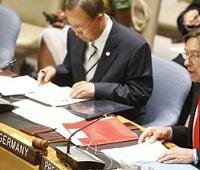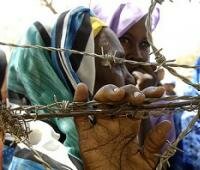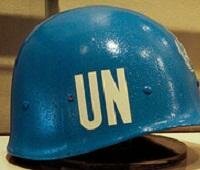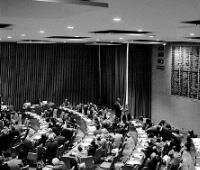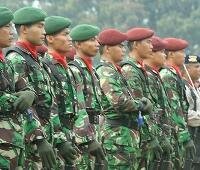Warfare and Limits: A Losing Battle?
Issue:Global militarisation
Nationalism, the dehumanisation of killing, and the frustration of asymmetrical war erode traditional limits on warfare writes Richard Falk for Al Jazeera.
Image source: Lebatihem.
Read more »Posted on 3/08/11
The Climate Security Council?
Issue:Climate change
Writing exclusively for SustainableSecurity.org, Joe Thwaites takes an in-depth look at the discussion at the UN Security Council on the security implications of climate change. Joe analyses the debate over whether the Council is an appropriate forum for dealing with climate change discussing the views of both great powers and those who are set to lose most from a warmer global climate in the years ahead.
Image source: United Nations
Read more »Posted on 28/07/11
Beyond ‘Controlling’ Global Refugee Flows: A Sustainable Security Approach
Issue:Marginalisation
Writing for the World Policy blog, Ben Zala analyses the recent announcement of Australia and Malaysia’s agreement to “swap” asylum seekers. He argues that until legitimate attempts are made to address the factors driving refugee flows - such as on-going military conflicts, economic insecurity, and increasing environmental and resource constraints - the problem will only continue to get worse.
Image source: United Nations.
Read more »Posted on 28/07/11
UNSC's Climate Change Session Masks Members' Intransigence
Issue:Climate change
Last week's discussion at the U.N. Security Council on the security implications of climate change was an important step in the right direction. This is only the second time that the subject, which may turn out to be the defining issue for global security in the 21st century, has made it onto the agenda of the U.N. body charged with maintaining international peace and security. The discussion's importance is limited, however, since the real path to addressing the security implications of climate change lies outside the council.
Read the full article here. You will need a subscription to WPR to read the full article; if you are not subscribed already then you can get a free trial subscription here.
Image source: Riacale.
Read more »Posted on 27/07/11
Middle East WMD-Free Zone Support from the CTBT
Issue:Global militarisation
Most of the States whose support would be required to establish a Middle East zone free of nuclear weapons and all other weapons of mass destruction have already signed the Comprehensive Nuclear-Test-Ban Treaty (CTBT), Tibor Tóth, Executive Secretary of the CTBTO told a seminar in Brussels, 7 July.
The creation of such a zone would rest on “a tripod,” its legs consisting of a ban on nuclear weapons, no misuse of fissile material and no nuclear testing, said Tóth. The CTBT would meet the last requirement.
And the “good news,” he told the seminar, organized by the European Union, is the almost complete endorsement in the region of the Treaty, which is approaching nearly complete global assent and becoming a universal norm.
Article source: CTBTO Preparatory Commission
Image source: United Nations Photo
Read more »Posted on 25/07/11
Indonesia’s Military and Climate
Issues:Climate change, Global militarisation
With more than 17,000 islands and 80,000 kilometres of coastline, Indonesia is extremely vulnerable to climate change. Analysts believe that rising temperatures will almost certainly have a negative impact on human security in Indonesia, which in turn will increase the probability of domestic instability and introduce new regional security concerns. With this in mind, it’s important that Indonesia’s armed forces take a range of measures to prioritize environmental security, including procuring new equipment, strengthening bilateral and multilateral relations, and undertaking training for new roles and missions.
Article source: The Diplomat Blogs
Image source: Studio Titus
Read more »Posted on 25/07/11





